Cerebral Palsy
Overview
Cerebral Palsy (CP) is caused by damage to the developing brain, mostly before birth. Symptoms appear during infancy or the preschool period. It can vary from very mild to serious. It happens when the brain can’t properly send messages to muscles about how to move in smooth or well-coordinated ways.
Children with cerebral palsy may have exaggerated reflexes. Cerebral Palsy is a congenital disorder affecting movement, muscle tone, or posture.
Manifestations include exaggerated reflexes, floppy or rigid limbs, and involuntary movements, appearing prenatally or by early childhood. Long-term correction includes physical and other therapies, drugs, and even surgery.
Cerebral Palsy can also affect other functions that involve motor skills and muscles.

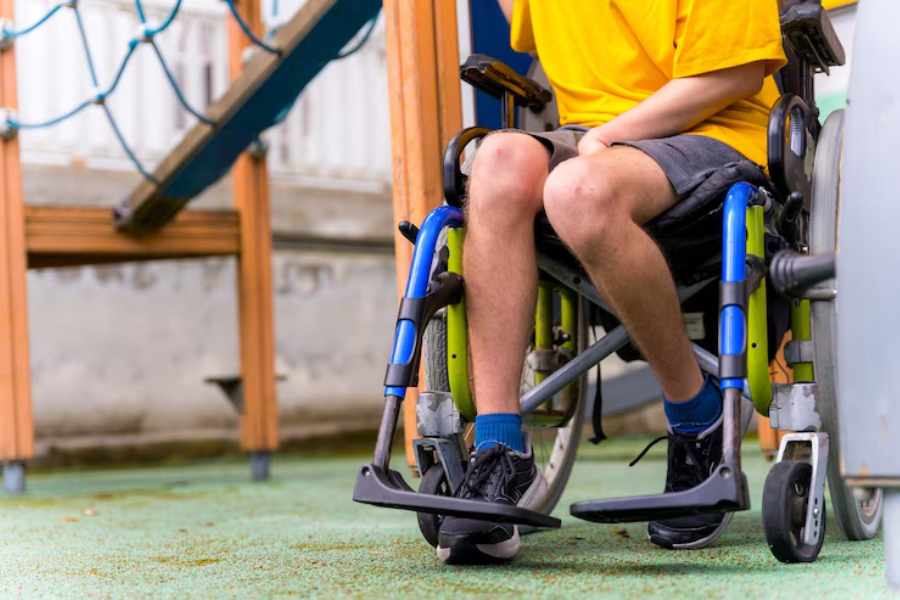
Symptoms
The symptoms of cerebral palsy vary from person to person and range from mild to severe.
Symptoms that appear could be…
• Delay in reaching motor skill milestones, such as sitting up alone, or rolling over
• Difficulty walking due to stiffness of muscles.
• Spasticity or stiff muscles and exaggerated reflexes.
• A lack of muscle coordination - Changes in muscle tone - Tremors or involuntary movements.
• Speech development delay and difficulty speaking.
• Favouring one side of the body, such as reaching with one hand - Too floppy or too stiff muscles.
Causes & Risks
• A traumatic head injury to an infant, such as from a motor vehicle accident, fall, or physical trauma.
• Gene changes that result in genetic conditions or differences in brain development.
• Certain toxic exposures during pregnancy can significantly increase cerebral palsy risk to the baby.
• Stroke, which interrupts blood supply to the developing brain.
• Bleeding into the brain in the womb or as a newborn.
• Infant infections that cause swelling in or around the brain - Inflammation triggered by infection or fever can damage the unborn baby's developing brain. Lack of oxygen to the brain is related to hard labor or delivery, although this cause is less common than previously thought. Intrauterine infections. This includes infections of the placenta or fetal membranes.
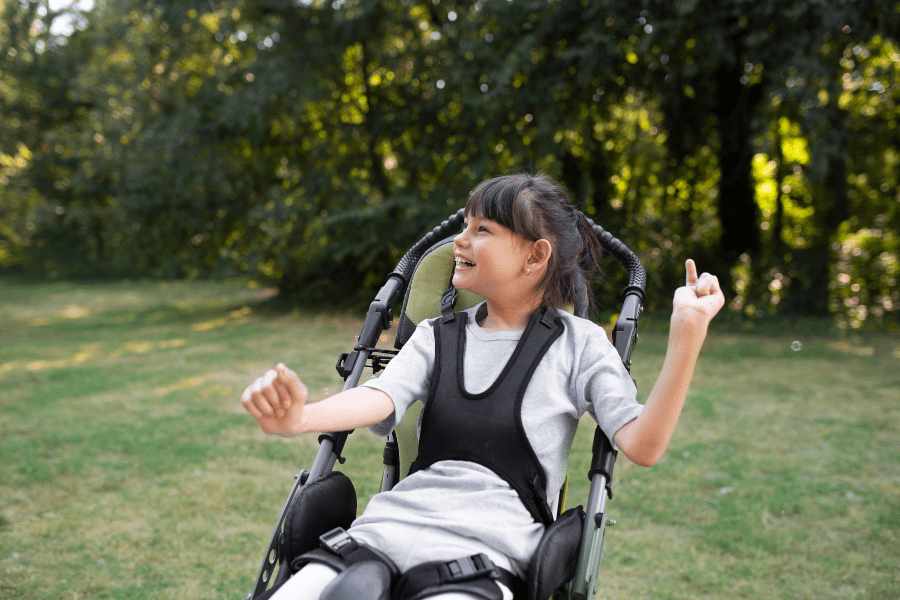
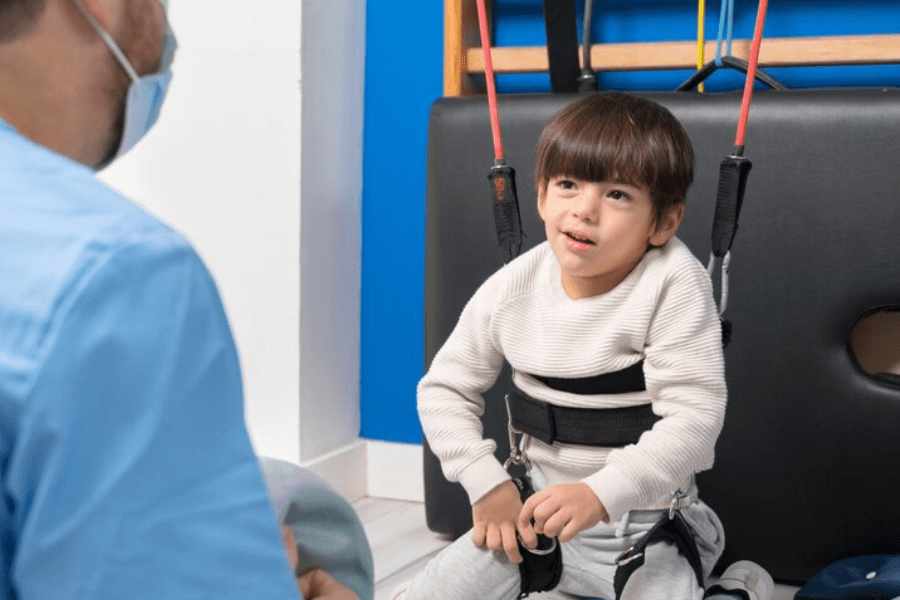
Test & Diagnosis
• Brain scans - This can reveal areas of damage or irregular brain development. The tests may include:
1. An MRI uses radio waves and a magnetic field to produce detailed cross-sectional images of the brain. An MRI can often identify changes in the child's brain. This test is painless.
2. Cranial ultrasound – The ultrasound can be performed during infancy. A cranial ultrasound uses high-frequency sound waves to produce images of the brain. Ultrasound doesn't produce a detailed image, but it may be used because it's quick and can provide a valuable preliminary assessment of the brain.
• ECG - Electroencephalogram – that records the electrical activity of the child's brain.
• Lab tests - Blood and urine tests are used to check for genetic conditions.
Cerebral Palsy Treatment
• People with cerebral palsy may require lifelong care with a healthcare team. The child's health care professional and a physical medicine and rehabilitation specialist may oversee your child's care.
• The child must see a pediatric neurologist, therapists, and mental health specialists. The experts can then give special attention to the needs and issues faced by patients.
• Experts work with the child's healthcare professional. Together they can develop a treatment plan.
• Many treatment options may help improve the child's daily functioning. Selecting care depends on your child's specific symptoms and needs, which may change over time.
• Early intervention can improve outcomes. Treatment includes medications, therapies, surgical procedures, and other treatments if need be.

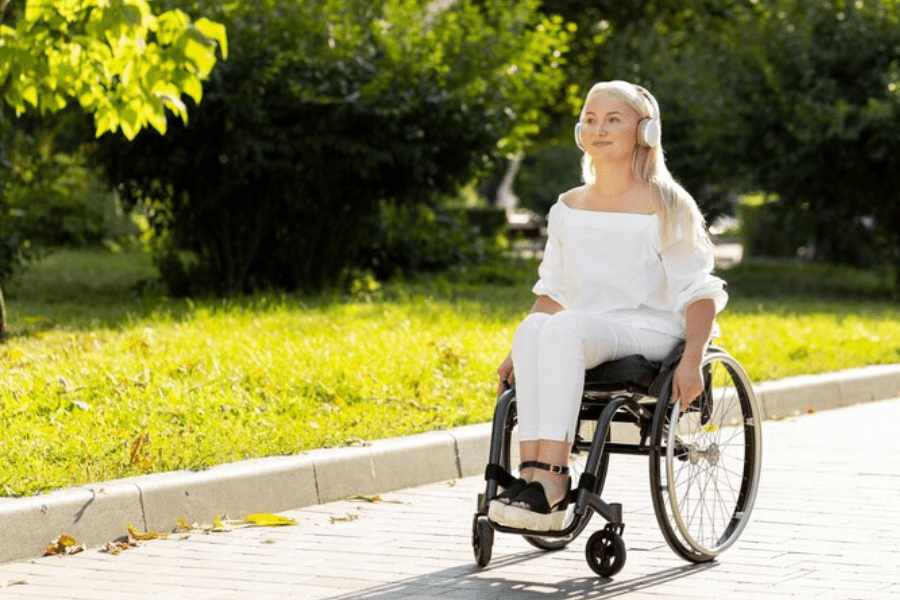
Living With
Living with cerebral palsy (CP) involves handling various challenges associated with movement, and daily activities due to damage or abnormalities in the brain that affect motor function.
Following are some important aspects individuals with CP and their caregivers come across:
Cerebral Palsy (CP) affects muscle control, coordination, and movement. The severity varies among individuals, resulting in difficulties ranging from mild impairments to more severe limitations in mobility, balance, and posture. Some individuals with CP may require mobility aids like wheelchairs, walkers, or other assistive devices to help with movement and activities of daily living.
Physical therapy, occupational therapy, and speech therapy play crucial roles in managing CP. These therapies aim to improve motor skills, coordination, speech, and daily living abilities. Medical check-ups and care from healthcare planner or providers are essential.
Complications
• Muscle weakness, muscle spasticity, and contracture, which is muscle tissue shortening due to severe muscle tightening.
• Malnutrition. Trouble with swallowing and feeding can make it hard to get enough nutrition, particularly for an infant. This can impair growth and weaken bones. Some children or adults need a feeding tube to get enough nutrition.
• People with cerebral palsy may also have mental health conditions, such as depression. Social isolation and the challenges of coping with disabilities can contribute to depression. Behavior issues also can occur.
• Individuals with cerebral palsy may develop heart disease, lung disease, and breathing conditions.
• Pressure on joints or misalignment of joints from muscle spasticity may lead to this painful bone disease.
• Fractures due to low bone density can result from lack of mobility, poor nutrition, and anti-seizure medicines.
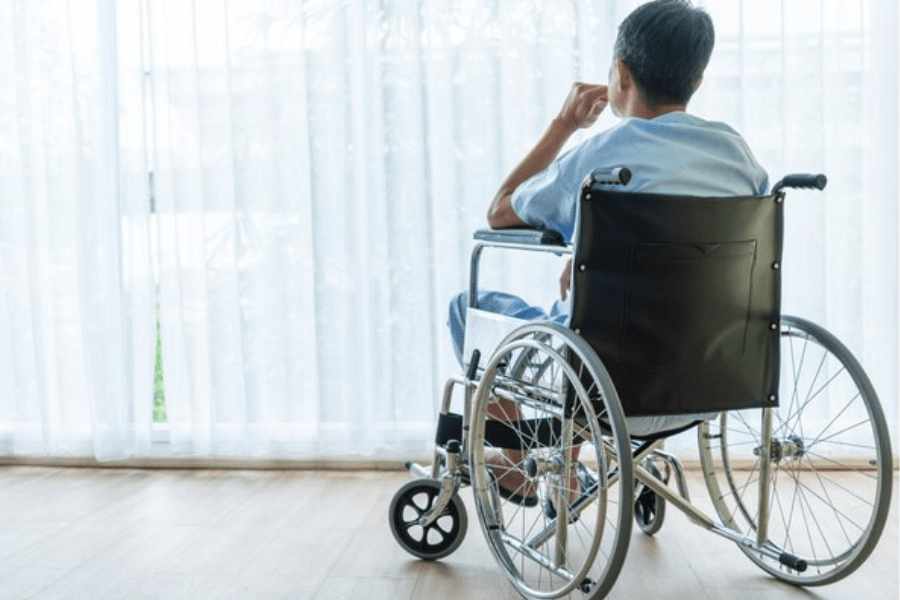

The Content is not intended to be a substitute for professional medical advice, diagnosis, or treatment. Always seek the advice of your physician or other qualified health provider with any questions you may have regarding a medical condition.
Know more about
Our Healthcare Planner
Personal Health Planner at BNC is a support staff who listens to your concerns and connects you with a Neuro Care provider. They prioritize your needs and create a trusting relationship between you and the provider.
Three fundamental values we can assure you:
1. Personalized Healthcare.
2. Most advanced robotic therapies
3. Transparent pricing





